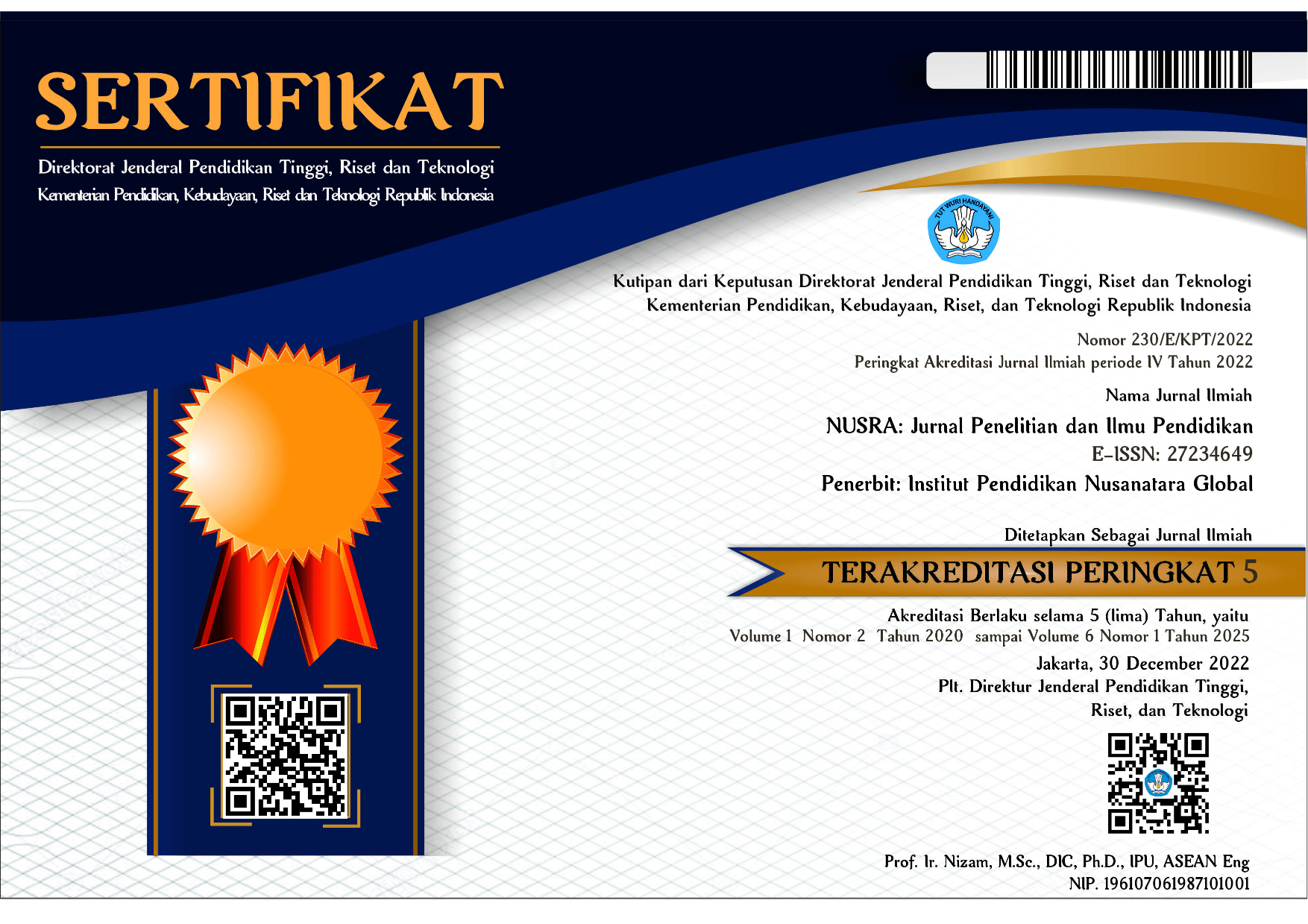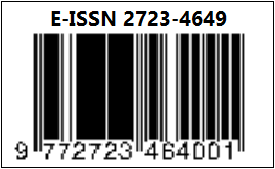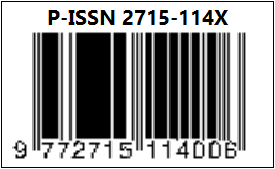PENGEMBANGAN SUMBER DAYA MANUSIA UNTUK MENUMBUHKAN KARAKTERISTIK PADA ANAK USIA DINI
DOI:
https://doi.org/10.55681/nusra.v2i1.67Keywords:
Human resources,, Characteristics,, Early childhoodAbstract
Human resource development was the development of individuals, groups or communities by providing knowledge, expertise, and experience so that they can carry out their roles and responsibilities in society. Problems that occur in parenting include: Parents give freedom to children to watch TV without supervision, give children to play PS, give gadgets to children, spoil children, compare children, and it is not uncommon to even scold and even hit children. One of the activities that can be done in human resource development is "Parenting". Parenting is an activity to develop human resources in order to provide education to parents regarding how to provide the best care for their children to shape their children's character from an early age. Because the most important education and the first in shaping the character of early childhood is education from the family, especially from parents. Education in the family plays a very important role in developing one's character, character and personality. Therefore, character education in the family needs to be seriously empowered. Character education in the family provided by parents can shape various characters of early childhood. The characters include: Religious, Honest, Tolerance, Discipline, Hard Work, Creative, Independent, Democratic, Curiosity, National Spirit, and Love of the Homeland, Appreciating Achievement, and Friendly / communicative, Love Peace, Love to Read, Care for the Environment, Social Care, and Responsibility.
Downloads
Downloads
Published
How to Cite
Issue
Section
License
Copyright (c) 2021 Fithrii

This work is licensed under a Creative Commons Attribution-NonCommercial-ShareAlike 4.0 International License.














